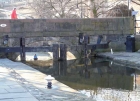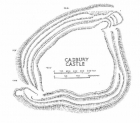Local history
Local history has become much more prominent in the most recent National Curriculum with a prominent place at each key stage. It has not always been well done even if children often enjoy it. Good local history involves careful planning ideally through an enquiry approach drawing on historical concepts and a range of sources. Local history provides great opportunities for practical work inside and outside the classroom. It is not something done in isolation but should link with other history so that children see the links between their direct world and the wider context.
-

A view from the classroom: Teachers TV, The Staffordshire Hoard And 'Doing History'
ArticleClick to view -

Planning for local history
ArticleClick to view -

Local history fieldwork
ArticleClick to view -

The view from the classroom
ArticleClick to view -

Hearts, Hamsters and Historic Education
ArticleClick to view -

History in the Urban Environment
ArticleClick to view -

Learning what a place does and what we do for it
ArticleClick to view -

Case Study: Working with gifted and talented children at an Iron Age hill fort in north Somerset
ArticleClick to view -

It's like they've gone up a year!' Gauging the impact of a history transition unit on teachers of primary and secondary
ArticleClick to view -

Written sources and local history at Key Stage 1
ArticleClick to view -

How do we ensure really good local history in primary schools?
ArticleClick to view -

‘No one else knows this’: Scottish primary schools using ICT to investigate local history
ArticleClick to view

